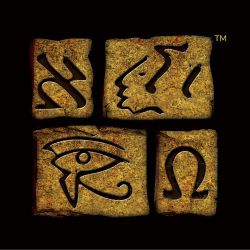
FAIR is a non-profit organization dedicated to providing well-documented answers to criticisms of the doctrine, practice, and history of The Church of Jesus Christ of Latter-day Saints.
General Principles |
|
Specific Cases |

Some claim that God’s command of Abraham to slay Isaac is an example of divinely endorsed child abuse. Anyone who knows the story is aware that the story is not about abusing Isaac nor does it even insinuate such. Rather, it is about God’s desire for Abraham to be willing to follow him despite hard trials to follow in his life. It also foreshadows the offering of God’s only begotten son in the flesh—Jesus Christ—saving us in Gethsemane and on the cross.
In the case of Christ, some secular critics claim that God is an abuser by sending his son to die on the cross. The short answer is that Christ was foreordained to come to earth to redeem all mankind. He voluntarily gave himself in the pre-mortal council to become our Savior (Moses 4:1-2; Rev 13:8; 1 Peter 19:21). Upon coming here to earth, his agency was not taken away from him. He had the ability to put down his life and to take it back up (John 10:18). It was God’s plan from the beginning, but the supernal gift and voluntary sacrifice of a loving Savior.
There are scriptures in the Bible that some see as endorsing corporal punishment and many today see corporal punishment as child abuse.
One example of this is Proverbs 13:24
Other examples can be found in Proverbs 22:15, Proverbs 26:3, and Proverbs 29:15.
The meaning of these scriptures is unclear. Readers are encouraged to simply be aware of them and, by the Spirit, discern their proper interpretation for their own circumstances.
Notes

FAIR is a non-profit organization dedicated to providing well-documented answers to criticisms of the doctrine, practice, and history of The Church of Jesus Christ of Latter-day Saints.
We are a volunteer organization. We invite you to give back.
Donate Now